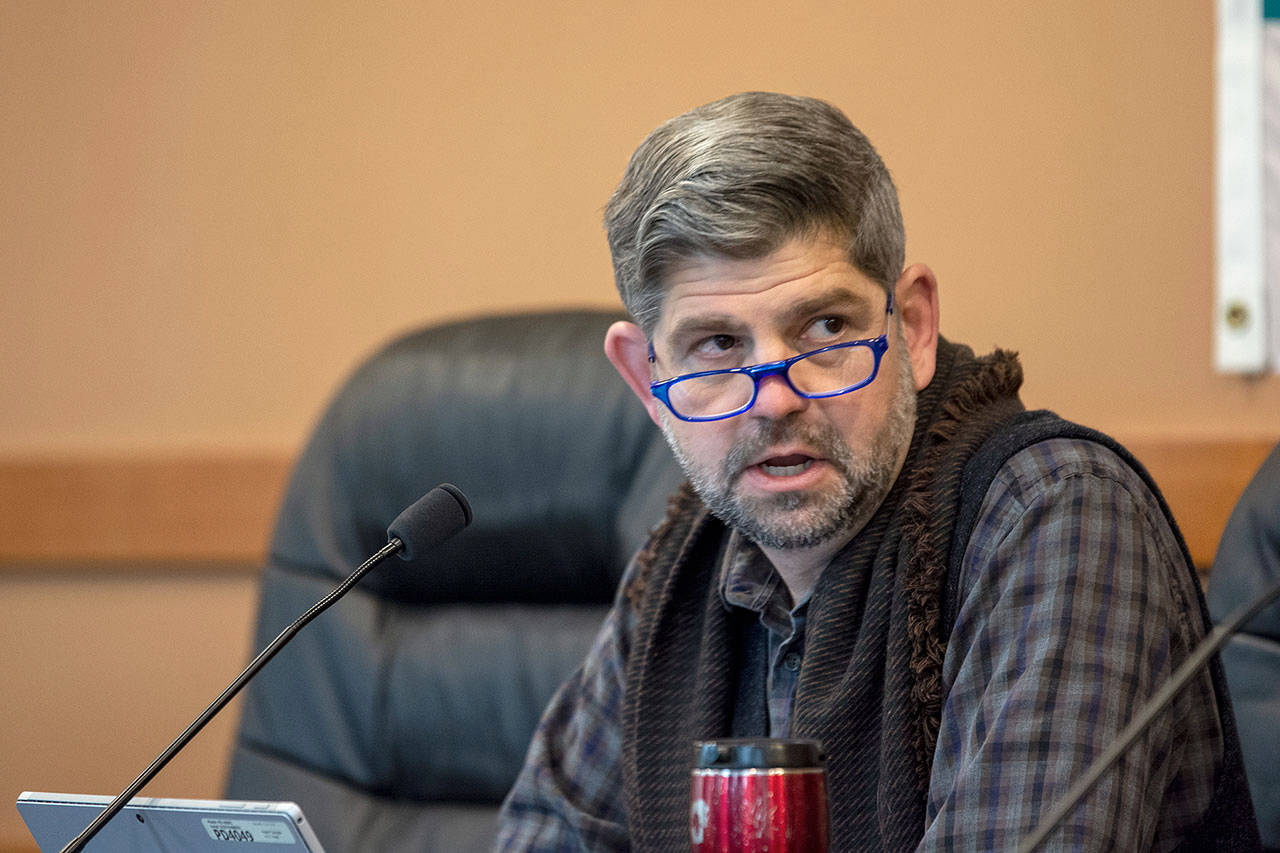In a rare 2-to-1 vote, Clallam County Commissioners have approved a property tax that is intended to preserve farmland.
On Nov. 26, commissioners Randy Johnson and Mark Ozias each voted in favor of the measure while Commissioner Bill Peach opposed it.
All commissioners agreed after a public hearing earlier this month that the Conservation Futures fund should be limited to only farmland preservation, and not be used on open spaces, critical areas or public access to water.
“While I have individually advocated for maintaining a broad range of potential uses for this fund, I think where we ended up with a focus on working ag land is appropriate given the feedback … that we got in our public outreach,” Ozias said. “I am quite pleased with the language we ended up with.”
Under state law, the Board of County Commissioners has the authority to pass — without a vote of the people — a property tax to create a fund that is used to purchase development rights to preserve farms, agricultural land, park land, open areas and public access to water.
The ordinance sets a levy at $0.0275 per $1,000 of assessed valuation, which Johnson said would raise about $250,000 each year. That would be an additional $6.88 per year for a home valued at $250,000.
When a land owner receives a payment from the Conservation Futures program, that property owner still owns the land and is still required to pay property tax. The only restriction is that the land must continue to be farmed.
Ozias said he hopes the county can now “salvage the agricultural economy in Clallam County.”
Johnson has said that, according to the U.S. Department of Agriculture, Clallam County has gone from 70,000 acres of farmland in the 1930s to about 17,000 acres of farmland now.
He said last week the ordinance requires the county to examine in 10 years whether it was effective. If not, the commissioners can dissolve it.
Peach, who voted against the measure, said he appreciated the transparency of the process.
“We had the opportunity to listen to both sides of the issue and it’s not the case all the commissioners agree all the time, and this is an example,” Peach said. “What I do appreciate is we are open with the public about what is being proposed.
“Fundamentally my objection is to a new tax. It’s a worthy project and I wish we could afford it another way,” Peach said.
He said he appreciates that the focus of the ordinance is on farms.
The ordinance also creates an advisory board that consists of five voting members, one from each of the three county districts and two at-large members.
Non-voting ex-officio members include the North Olympic Land Trust director or designee, the Clallam Conservation District director or designee, the Clallam County habitat biologist or designee, the Washington State University Extension agent and representatives from one or more tribal governments.
Term limits are limited to four years.
The board would make recommendations to the Board of County Commissioners, which would then have the final say in how funds are used.



